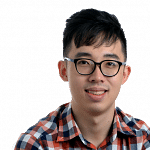Champions of culture
Nourishing readers with his short stories
Playwright Haresh Sharma, realist painter Chua Mia Tee, avant-garde musician Margaret Leng Tan and Chinese-language novelist Lin Gao received the nation’s highest artistic honour at the Istana last night. Life interviews this year’s recipients of the Cultural Medallion

Singaporean author Lin Gao, 66, is a slight, avuncular man, but head and shoulders above others in the local Chinese literary scene.
Last year, his short-short story collection, Micro-Fiction (Lingzi Media), won the Singapore Literature Prize in the Chinese fiction category.
A former Chinese-language teacher, curriculum specialist writer at the Ministry of Education and editor of children's literary magazines, he has penned three short story collections since 1991.
He says he was a "shy and contemplative boy" from Cheng San kampung, whom teachers noticed for his flair for the humanities. But his formal higher education in literature came relatively late.
His plan to study political science at Nantah University here was derailed when his father died of lung cancer when Lin was 19, so he enlisted for national service and became a teacher.
He taught for more than three decades between 1975 and 2012, at schools such as Tampines Junior College, Jurong Junior College and Raffles Institution.
At the age of 32, he enrolled in the National Taiwan University as an undergraduate to study Chinese language.
"It was me and a class of 20somethings," recalls Lin, who is also known by the name Lim Hung Chang. "Everyone called me Lao Da (Chinese for 'eldest' or 'big brother')."
He did his master's degree in classical Chinese in his 50s, at Huazhong Normal University in China.
Who and/or what has been the biggest influence on your art?
There is a who and a what. My professor Ye Heng Jun, who is now retired, covered the classical Chinese text A Dream Of Red Mansions with me. I admire the attitude behind the work and its view on mankind, society and life.
There's a seriousness, discipline and sincerity to how Cao Xueqin approached his creation.
The characters, Jia Baoyu and Lin Daiyu, are pure and simple. They led fulfilling lives in a complex, sometimes ugly, environment.
Prof Ye taught this text in a very passionate and compelling manner. She would sometimes be at a loss as to how to start her seminars because you could tell she was trying to find a way to do the work justice.
Your proudest achievement so far?
I would liken my career to a constantly flowing stream. I feel that one's character needs to be nourished, like the soil.
So I hope my works can do that for my readers, to the point where they find contentment within themselves, not in material comfort.
I take pride in the fact that my verses look inward, instead of criticising what's on the outside.
What do you consider your greatest failure?
I have written short stories, but I've yet to write a full-length novel. I've tried my hand at prose, poems and criticism.
My longest story is about 1,000 characters long. I feel that I'm not specialised in novel writing, as I've dabbled in a bit of everything. I don't think I have the technique to write a novel.
Is there anything you would do differently?
I would still choose to be an author. Writing is the best way to express myself.
What do you plan to do with the $80,000 Cultural Medallion grant?
I would get more of my books published. Then I would visit other cities for research to find more subjects to write about.
Join ST's Telegram channel and get the latest breaking news delivered to you.
A version of this article appeared in the print edition of The Straits Times on October 17, 2015, with the headline Nourishing readers with his short stories. Subscribe

